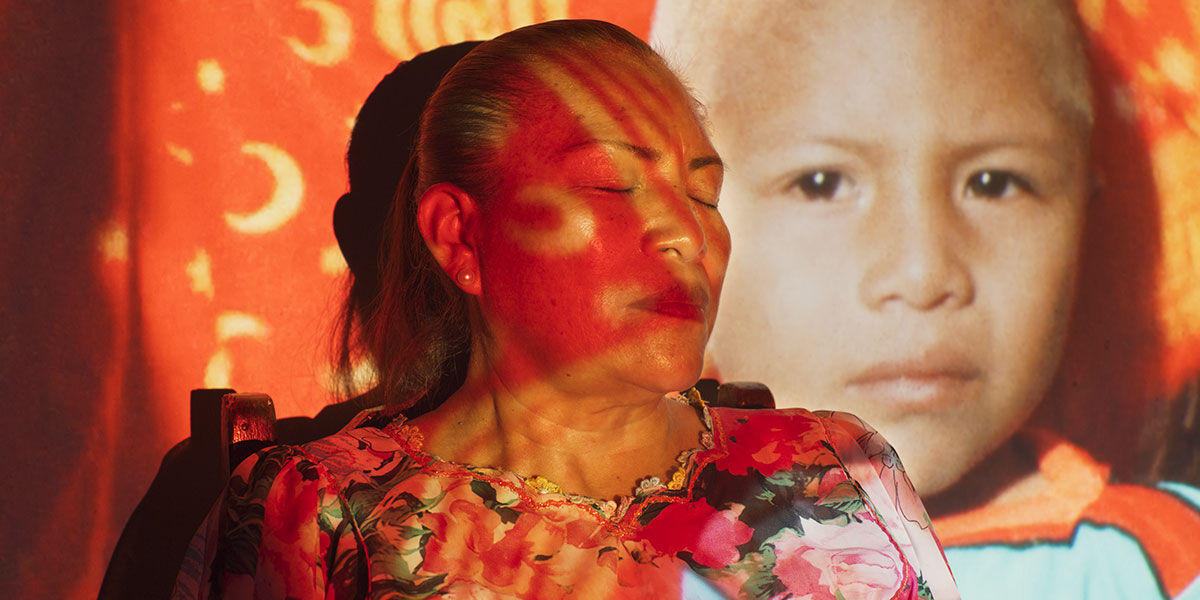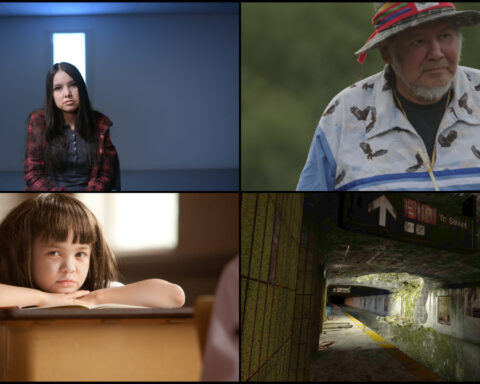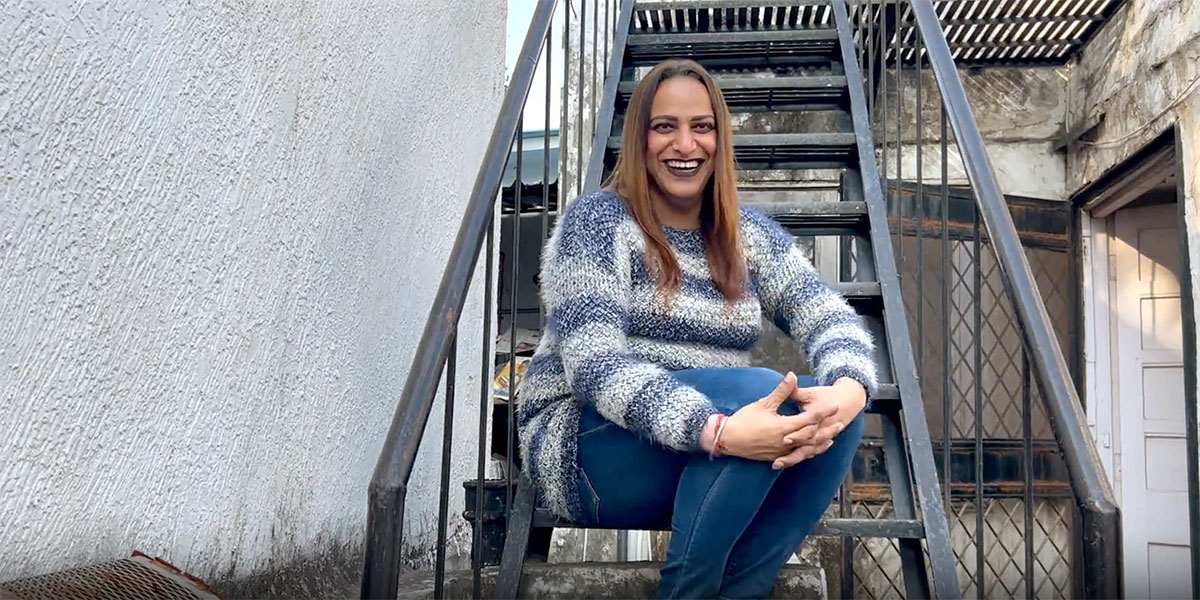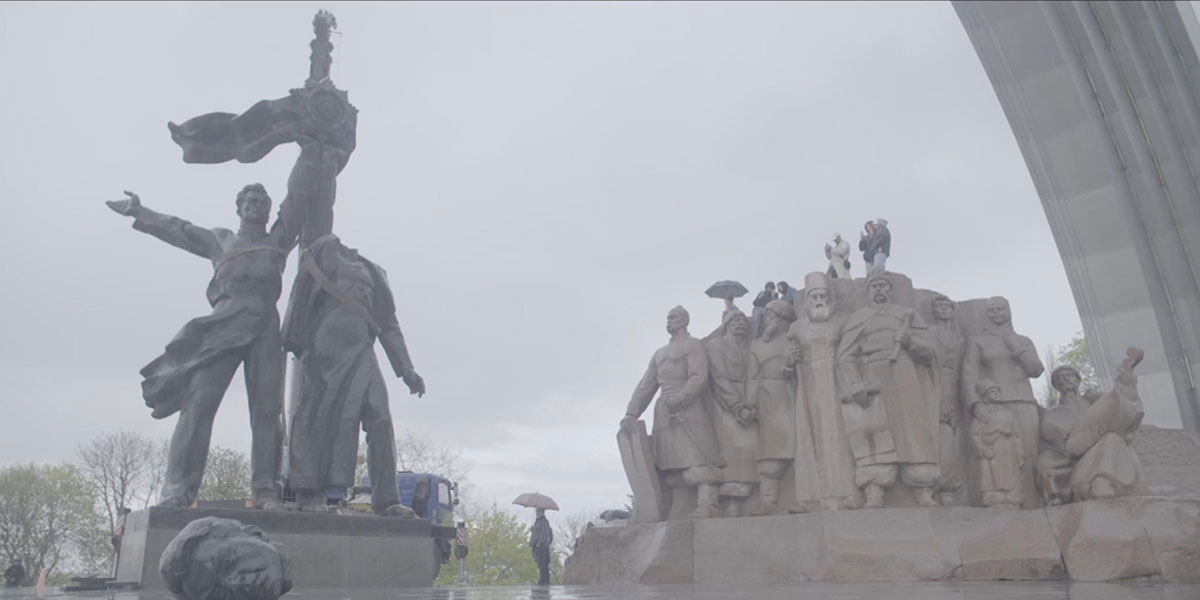God Is a Woman
(France/Switzerland/ Panama, 86 min)
Dir. Andres Peyrot
Programme: TIFF Docs (North American Premiere)
On its face God is a Woman is an account of lost film footage and how it was recovered and then screened. But it’s also a subtle dismantling of the heroic image of the intrepid filmmaker, tramping into unfamiliar geographies to document the cultural fabric of a community that’s not his own. Takedown complete, director Peyrot pays tribute to a community finding a new passion to define itself.
The film starts as Pierre-Dominique Gaisseau accepts the 1961 Oscar for his documentary The Sky Above, The Mud Below, about an expedition of Dutch explorers documenting Indigenous peoples in New Guinea. Fourteen years later, he set out to film the Kuna people (called Guna since 2010) on Panama’s San Blas islands, whose women play an essential role in leadership and rituals.
The Kuna embraced the project, eager to have a record of their unique rituals, including intimate initiation rites, as well images they could share with future generations. They asked nothing more than that they receive a copy of the movie when it was finished. But when Gaisseau fell ill, he couldn’t complete the project and the funding bank confiscated the reels. God is a Woman’s storyline follows the search for the film, its recovery and initial screening.
The main character is Turpana, a community leader and professor, who introduces Peyrot’s team to Kuna people, all of them engaging; they remember Gaisseau and even have photos of the shoot. Turpana always had questions about the famous filmmaker’s thinking and process. Gaisseau seemed unwilling to acknowledge that the community was transforming, that the tribal council were now half women, and that the Kuna no longer relied on planting to live. Turpano recalls how at one point Gaisseau asked women carrying plastic bottles to get out of the shot because it threatened the film’s authenticity.
Still Turpana wants to find whatever reels exist. In a moment of real suspense, he tracks some down to a basement in the cultural heritage ministry. Ultimately, a copy Gaisseau had meticulously preserved makes its way back to the Kuna, who plan a public screening.
Here’s where the film takes its most fascinating turn. The elders are enraptured by what they see; sequences with people who have long died and scenes of themselves when they were children. Peyrot overlays shots of the viewers onto the film images on the screen, an intriguing strategy highlighting the fact that the community has changed.
But the younger viewers are not so enthusiastic. They complain that the film romanticizes the tribe and fails to allow for its transformation over time. They see the doc’s anthropological approach as elitist—and listening to the insufferable voiceover on Gaisseau’s film, you can’t disagree. It feels to them as something designed to promote tourism more than to honour the actual community. One aspiring filmmaker grumbles that the movie is more about the director than about their lives. Others want to reclaim the images, interpreting them, and make some of them their own. And the title is misleading, making it sound like it’s a feminist doc about patriarchy’s takeover of religion over centuries.
Interwoven into the story are re-enactments of the Panamanian State’s brutality against the Kuna whose customs it wanted to suppress. But unfortunately, director Peyrot offers almost no context for these images. Still, he has given us a life lesson on how perspectives on documentary filmmaking have changed over a 50-year span.
God Is a Woman screened at the 2023 Toronto International Film Festival.
Get more coverage from this year’s festival here.














